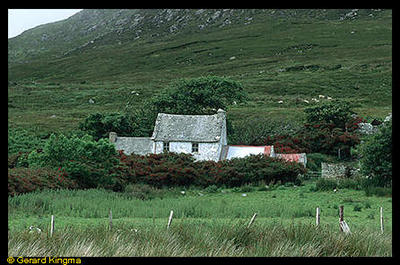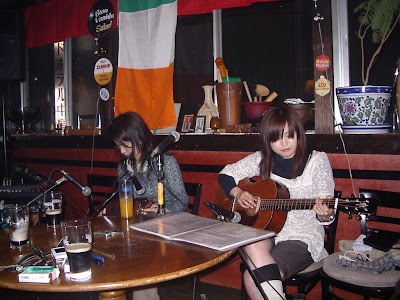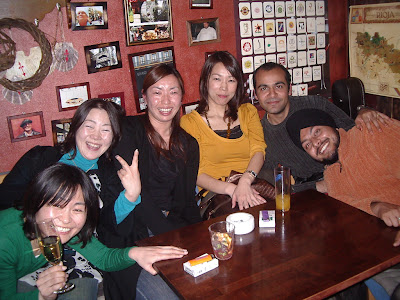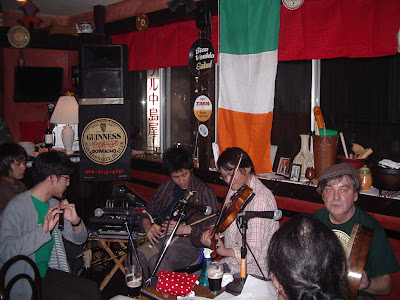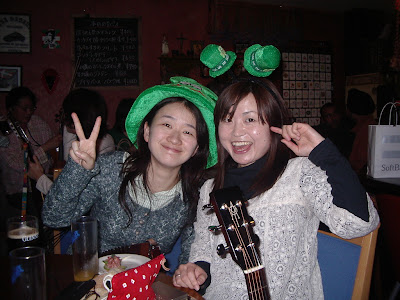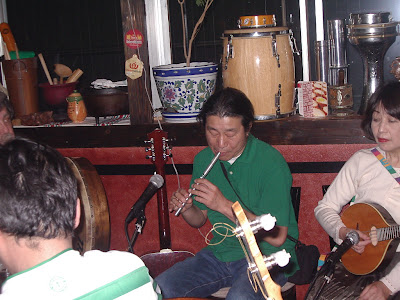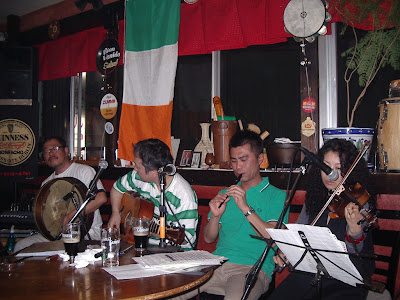 Love and death, possessing and killing,
Love and death, possessing and killing,
Are the dark foundations of the human soul.
-- Emile ZolaO happy snappy little prole
Sign yourself upon the dole.
Go out on Friday, Saturday night,
And get yourself into a fight.
Smash the bloke who spills your drink,
Go with feelings, never think.
A pint glass is the warrior’s cup,
So chase the girls and knock ‘em up.
Social Services, police?
Wind ‘em up and never cease.
Football’s the modern field of battle,
So go in with your mates and rattle
Their cages. Towering rages
Make you a man among men!
And then, in a short while, when
Sadly you end up on a slab,
Sliced and diced by Dr. McNab
At the age of twenty, twenty-one,
You’ll have fought and you’ll have won
You little tit, your little bit
In restoring dear old Britain
To things that once were written
By poets and sages
About the Dark Ages.
John MacDonald found a corpse, put it under the sofa,
Waited till it came to life and hit it with a poker,
Sold its eyes for souvenirs, sold its blood for whisky,
Kept its bones for dumb-bells to use when he was fifty *.
George Tremayne was a man of fame
Well known in local parts;
He smiled and broke the young girls’ hearts,
But then broke one too many:
He seduced my sister Jenny.
Now George lies deep in the earth beneath,
I was grave and polite; I sent a wreath.
Unfriendly friendly universe,
I pack your stars into my purseA weak cheer for our weary warriors
As they tread their hard way home;
Dispensers of Death, and yet,
It was through no wish of their own.
They are eager for love once more,
For simple acceptance; no foreign shore
Of unburied corpses, nor stink of war;
Eager to return to placid streams,
To ignore their dark unsettled dreams
And live as once they lived before.
But every man who was there can say
It never quite works out that way.
They need sweet sleep so badly,
And have no further wish to fight;
They would return their medals gladly,
For just one dreamless, peaceful night.
Every desire is a fear, every fear is a desire.Doctor Mortimer duly arrived from Devon
On that clear September morning.
Holmes and I had had warning
But nothing under the canopy of Heaven
Could have prepared us for the Tale he told.
That Hound from Hell upon the Moors!
Heave aboot, ye Knaves and Hoors,
And roll them spittin’ cannons out!
Take aim, amidships, wait for the shout,
And dream on gold and jewels.She would not think him half so cruel
Were she smiling prettily before him now
Instead of mouldering in the tomb;
Alive, at first, but with no room,
So very little room to move,
But time to think, before she died,
Of the earth and stones above her.
He had long since ceased to love her,
And arranged it all; if only to prove
The art of murder should best be applied
To enhance the fear of approaching doom.
Her fingernails torn to shreds, he imagines.
The darkness, the solitude, the weight:
Calculations of his cold dark hate.
He’s alive, he’s fuckin faking!
Chak ….. Chakka - Chak
Well, he’s f---in dead now.-- US Marines, Fallujah 2004
Here’s a cracking new idea:
You ready?
- She’s a blonde/ brunette/ a redhead
- She’s young and sexy
- She’s got a filthy rich husband
- He’s old and fat
- She likes you
- She makes passionate love to you
- She says she adores you
- She wants you, needs you, etc.
- She begs you to kill her husband
- She’ll inherit the money
- You’ll wait until things cool down
- You’ll “meet”, you’ll get married
- You’ll live happily ever after
Me, I was in the Boy Scouts
So I know a thing or two,
( a couple of years in the Army as well,
but, truth to tell, Scouts is all you need
to learn depravity, get up to speed)
So this is what I’ll say to you:
She’ll be sitting on a sunny beach,
Out of call and out of reach,
Cuddling with her personal banker
While you, you trusting silly wanker,
Will be sprawled out at your leisure,
Doing 20 years at Her Majesty’s pleasure.
Dreamsister, dream once more of me
And I will sleepily dream of thee;
It is only in dreams my life has meaning,
When I hear you calling, softly keening.Inchigeelagh.
My love and my mate
That I never thought dead
Till your horse came to me
With bridle trailing,
All blood from forehead
To polished saddle
Where you should be,
Either sitting or standing;
I gave one leap to the threshold,
A second to the gate,
A third upon its back.
I clapped my hands,
And off at a gallop;
I never lingered
Till I found you lying
By a little furze-bush
Without pope or bishop
Or priest or cleric
One prayer to whisper
But an old, old woman,
And her cloak about you,
And your blood in torrents –
Art O’Leary –
I did not wipe it off,
I drank it from my palms. **
Yuri Andeeivich Kostolenko
Is an ordinary Russian (Ukrainian) thug,
Wears a leather jacket, shades, a gold rolex,
And if you ask him he might shrug and flex
His muscular beefy arms, perhaps display
His shrapnel scars, the weird tattoos
He got when he and his mate Sergei
Were high as kites and on the booze
With
Spetznatz in Afghanistan; Yuri smiles
And gazes three, four thousand miles.
He leaves this world behind. He is not unkind
To animals and little children, not on purpose,
But he will chop off your fingers with a cleaver,
Extract your teeth with pliers, connect live wires
To sensitive parts, or blandly stick a telephone receiver
Up your arse or down your throat. No use talking.
Yuri never listens: Dollars or Euros do the walking.
War was a game; this, the same:
Bizzinez is
Bizzinez.
Sobibor survivors testified at the trial that Stangl used to ride into the camp and attend ‘selections’ dressed in a white riding habit. ‘How could you go to the camp in that get-up?’ ‘The roads were very bad,’ he replied. ‘Riding was really the best mode of transport.’ I tried once more. ‘Yes, but to attend the unloading of these people who were about to die in a white riding habit …?’ ‘It was hot,’ he said.-- Gitta Sereny interview with Franz Stangl, ex-SS commandant of Sobibor.
The clouds come drifting from west to east,
Other days they drift from east to west;
Armies come with them from both directions,
Not once, not twice, but many times:
Russia, Germany; and also, Sweden and Austria,
For sometimes the wind blows north and south.
You wouldn’t want to be a simple peasant
Exposed on this martial gathering ground;
And you really wouldn’t want to be a Jew,
Not if you knew what was good for you.
The autumn of ’39 came in like a thunderclap.
It was more, this time, than foreign uniforms,
Some new king squeezing the land for tax,
Much more, so very much more than that:
A half-cocked racial theory had landed.
Auschwitz – Oswiecim – sums it up for us now,
But many survived Auschwitz, hardly any survived
Maidenek … Sobibor … Chelmno … Treblinka.
The utter disgrace of Europe, of historical mankind,
Begins with the
philosophes of Enlightened Paris
And ends, logically, in the killing sheds of Poland.
My job
Was to do what I was told.And this is just totally unacceptable.
This is not only bad, it is wrong.
One of the real reasons we hate the Nazis …
Dislike the Germans, in fact, since Caesar’s time,
A people arrogant in victory, abject in defeat;
Either at your throat, or kissing your feet …
Is their planned, industrial approach to murder,
Their cold inhuman efficiency.
They make the rest of us look stupid
Or rather, make us look good by default:
We prefer to kill in the heat of the moment,
Or when we feel tired, upset, disgruntled,
Or because we received a shitty letter from home,
Or a lot of the time, too much of the time,
Because we are drunk.
Then we just want to forget all about it –
Come home to those placid streams,
Block out bad dreams.
But we rarely feel bad when our victims are unseen,
When there’s no personal memory of where we’ve been
Or of what we’ve done; we can drop a kiloton
Of bombs with mad persistence; from a distance
The blood and ruins, the scattered body parts,
Leave no scars upon our hearts.
We trained very hard for this mission and we knew what we had to do. When we pulled away from the target we were lifted up by a shock wave, and I knew in that moment that the mission was successful … When I looked down, what I saw was an area of roiling tar where before there was a city. Do I have any feelings of guilt? Well, I knew there were human beings down there and I felt sorry for them, but we were sent out to do a job and we did it. That’s the deal. Anyway, if it hadn’t been me somebody else would have done it.-- Colonel Tibbets, commander of the ‘Enola Gay’.
Somebody else would have done it.
I suppose Genghis Khan, Tamerlane, could have said the same.
So could ‘Bomber Harris’, Dark Angel of Dresden.
So could so many others.
I think it’s a miracle to have made it this far,
All things considered. And also you, my friend,
Tu le connais, lecteur, ce monstre délicat,
—Hypocrite lecteur, —mon semblable, —mon frère!Thank God (!) for the common sense of the Soviets,
Which is not quite as silly as is it sounds,
When one thinks of the people on ‘Our Side’.
O, God, sweet Mary Jane,
I saw you coming down the lane –
Smoke without fire.
We shall lie within a silken room
In Sidon or in royal Tyre,
Or if you will
In Notting Hill,
Wherever you desire.Love, reign on me!
Reign over us all.
The man wanted for killing a British woman in a Tokyo flat had charmed her by sketching her portrait, police in Japan have said. Lindsay Hawker was beaten, stripped then strangled before being buried in a bathtub of sand, they added. It also emerged that chief suspect Tatsuyo Ishihashi had been warned in the past over claims he had stalked a young woman. Miss Hawker’s naked body was found in Ishihashi’s apartment on Monday.***
Japan is a doddle, so safe and so wonderful, so polite,
You just walk around in a daze of incomprehension
For the first few months; then the reaction kicks in
And you start to hate the place, since you think the locals
Are having a laugh at you, which, to be honest, they are,
And then it doesn’t matter because you hit your second wind,
And then you start to understand bits of the language,
And then you start to actually speak it a bit, which means
You meet all kinds of interesting new people, and, by then
My friend, you are hooked. You go home on holidays, sure,
But you always want to come back. It’s not exotic, like Thailand;
It’s totally straight down the line but like some other planet.
Imagine they wear a watch showing twenty-five hours in a day
And you are stuck with the good old traditional twenty-four;
So you are in line for some of the time, sometimes minutes away,
But never completely in synch. Yes, well, that’s my take on Japan.
They know exactly what’s going down and you don’t have a clue.
Some people freak and run home; the oddballs kind of like it.
Poor young Lindsay. What happened you?
Where was the back-up, the
gaijin friends?
Can’t tell you the number of times when this rash poet,
Soi-disant, befuddled, s-s-s-slightly discombobulated,
Discerned menacing shadows perhaps closing in,
When a voice from the darkness called out,
‘Everything OK, mate? Put you in a taxi, orright?’
The moment of danger … if it was danger … is over.
So, Lindsay, what went down?
Where were your friends when you needed them?
Didn’t you know this geek meant trouble?
I will never know, and I can’t double-guess;
I never even knew you, and there are hundreds
Of girls like you, but none quite like you, and we didn’t
Even live in the same city, and so on and so on …
But I can tell you this, or tell your family,
That every gaijin guy in this country,
Surrounded by 125 million Japanese,
Hoards a nugget of shame, his share of the blame,
That we couldn’t do better,
That we couldn’t protect you.
-----------------------------------------------------------------------
Brief Notes and Links
* Extract from
Bagpipe Music by Louis MacNeice.
** Extract from
Caoineadh Airt Ui Laoghaire (The Lament for Art O’Leary)
***
The Lindsay Hawker caseThere are some other short, usually italicized, quotes from Edwin Muir, James Fenton, Charles Baudelaire and The Who. For better or worse, everything else is my own.






































